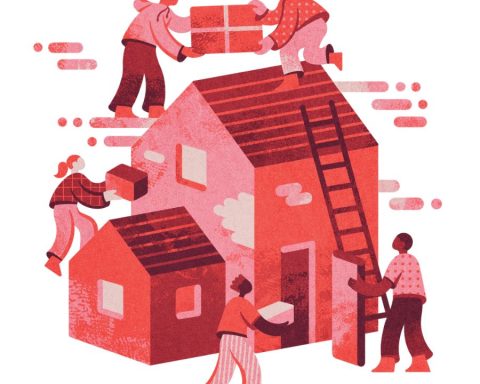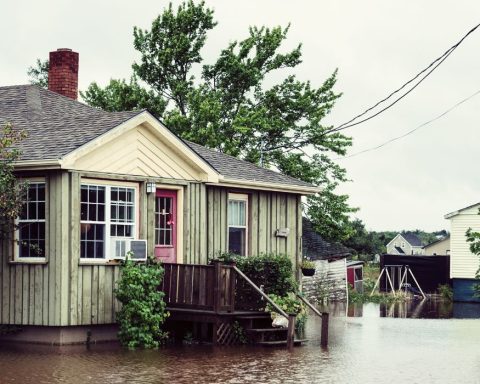In metropolises around the world, a dividing line can be drawn with this question: Airbnb, friend or foe?
Where you land likely depends on your own vested interest, either as a landlord who has turned to the popular short-term rental platform for revenue generation, or as a renter who has watched your housing options dwindle. A decade ago, the sharing economy was held up as a collective balm to the consumption-driven ethos of our societies. Airbnb, which was started by a couple of guys in San Francisco who rented out mattresses in their apartment to be able to make rent, became one of the most emblematic symbols of a more sustainable revolution. But along the way, the venture ballooned into a massive hotel- and rental-market disruptor that many blame for fuelling an ongoing housing crisis.
Enter New York City, home to an estimated 40,000 Airbnb units – and now the latest city to crack down on short-term rentals. Earlier this month, the city’s Local Law 18 took effect. Now, hosts must register with the city government, and only those who live in the units and are present while renting out space will be authorized to list their properties. There’s also a cap of two guests per unit. They’re among the strictest rules yet adopted by municipal governments that have been waging war against illegal short-term rentals, including those run by shell companies that have used the sharing platform to rent out entire buildings.
Airbnb’s global policy director denounced the move as “a blow to the tourism economy and the thousands of New Yorkers and small businesses in the outer boroughs who rely on home sharing and tourism dollars to help make ends meet.” The corporation’s attempts to block the law in New York courts have failed, with a judge declaring in August that the restrictions were “entirely rational.”
New York’s prohibitions also mark a return to the essence of what Airbnb was originally about, and the sharing philosophy that drove it.
The Airbnb controversy is not new. Lawmakers around the world have been forced to respond to mounting public pressure to rein in short-term rentals that many believe are directly linked to plummeting rental stock. Airbnb pulled in US$2.5 billion globally in the second quarter of 2023, a jump of 18% compared to the same period last year. The company said it added a record number of new listings, while the number of nights and experiences booked grew 11% over the same period.
The rise of digital nomads in places like Mexico City or Buenos Aires has a spillover effect on the availability of housing, as landlords are drawn to the more profitable opportunity to rent in a foreign currency.
Various cities in Europe have imposed restrictions, such as Vienna, which limits short-term rentals to 90 days a year, or Paris, which has a 120-day cap and also requires local registration. In Quebec, a deadly fire spurred officials to require that short-term renters obtain a licence to operate, while Dallas has limited such rentals to specific neighbourhoods, and Santa Monica has banned rentals of fewer than 30 days. Earlier this year, the Green Party of British Columbia called on the government to create a short-term rental registry so that officials could properly track how they are affecting the local housing market, which has become alarmingly unaffordable. In the Gulf Islands, a stream of units is now available through Airbnb and Vrbo platforms, making it difficult for residents and workers to find accommodation, according to the Salt Spring Housing Council.
“We are losing hospital workers, we’re losing teachers, we’re losing tradespeople. Our businesses are impacted,” Mairi Welman, chair of the council, told CBC earlier this year.
The New York case reveals the greys of the matter, with some Airbnb hosts complaining that the city government has used too blunt of an instrument to regulate the housing landscape. “Often rental income is the means through which a homeowner can afford their mortgage,” said Restore Homeowner Autonomy & Rights, a group of one- and two-family homeowners in New York’s five boroughs that is lobbying the city government to tweak its rules.
“Eliminating the option of short-term rentals will threaten owners’ ability to cover their mortgages, possibly creating an additional housing crisis.”
Airbnb, likely reading the room, launched a “Sustainable Hosting Plan” in the United Kingdom last year, with the goal of making housing more affordable for its hosts while cutting back on carbon emissions. Hosts had until the end of January 2023 to apply for a grant worth up to £3,000, to help cover the cost of energy-efficiency improvements, such as insulation or replacing an old boiler. The company had earmarked a total of £1 million for the fund.
“In the face of rising energy bills, we want to support Hosts further by helping them with energy efficiency improvements and bringing their bills down in the long-term,” Amanda Cupples, general manager for Northern Europe at Airbnb, said in a statement at the time.
But green PR might not be enough to sway hearts in the face of an ever more alarming affordable housing crisis.







